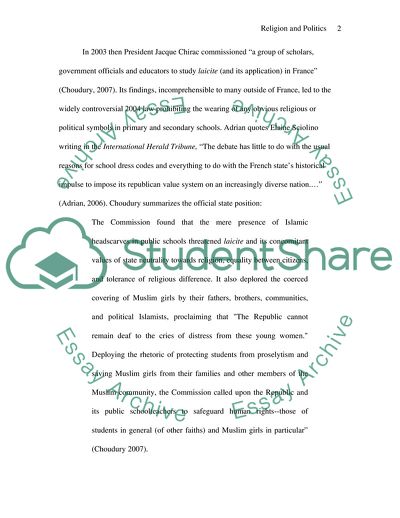Cite this document
(The Distinction Between Religion and Politics in France Assignment, n.d.)
The Distinction Between Religion and Politics in France Assignment. https://studentshare.org/religion-and-theology/1731083-the-distinction-between-religion-and-politics-in-the-european-union-how-secular-is-france-in-reality
The Distinction Between Religion and Politics in France Assignment. https://studentshare.org/religion-and-theology/1731083-the-distinction-between-religion-and-politics-in-the-european-union-how-secular-is-france-in-reality
(The Distinction Between Religion and Politics in France Assignment)
The Distinction Between Religion and Politics in France Assignment. https://studentshare.org/religion-and-theology/1731083-the-distinction-between-religion-and-politics-in-the-european-union-how-secular-is-france-in-reality.
The Distinction Between Religion and Politics in France Assignment. https://studentshare.org/religion-and-theology/1731083-the-distinction-between-religion-and-politics-in-the-european-union-how-secular-is-france-in-reality.
“The Distinction Between Religion and Politics in France Assignment”. https://studentshare.org/religion-and-theology/1731083-the-distinction-between-religion-and-politics-in-the-european-union-how-secular-is-france-in-reality.


